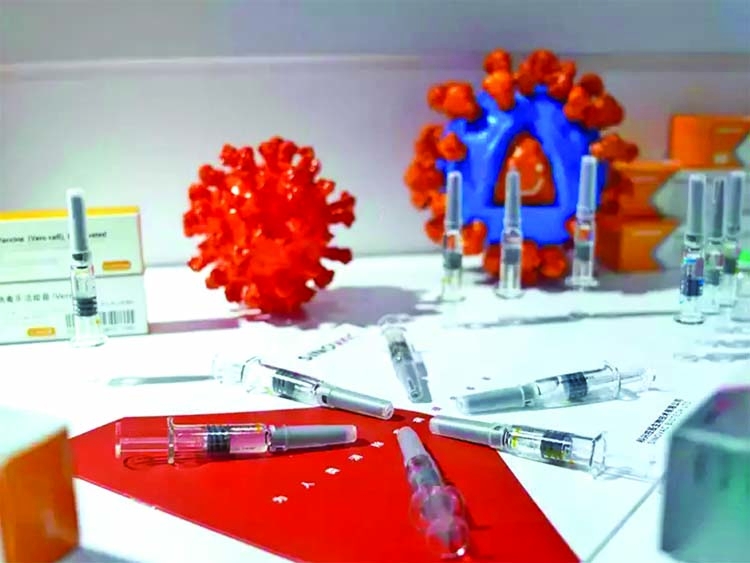Published: 02:29 AM, 01 December 2020
How China is failing in 'vaccine diplomacy'

Amid widespread criticism for its mishandling of the Covid-19 outbreak, China has been trying hard to change the global narrative with 'vaccine diplomacy'. However, lack of public data about its Covid vaccines, promising alternatives and a snub by Asean allies have signaled that most of the world may choose not to tread the ambitious 'health risk road' laid by China, reports ToI.
The first hiccup came recently when questions arose over the efficacy of China's frontrunner vaccine candidate following initial clinical trials.
The results revealed that while Sinovac Biotech's experimental vaccine 'CoronaVac' triggered an immune response, the level of antibodies produces was lower compared to people who had recovered from the disease. The 'moderate results' came in stark contrast to US firms Moderna and Pfizer declaring their candidates over 90% effective in late-stage trials.Even other leading candidates have shown more promising data. Oxford-Astrazeneca's candidate was found to have an overall efficacy rate 70% while Russia claims that its Sputnik V vaccine is 92% effective.
Besides, China is also lagging in the global race to supply vaccines with most countries already pre-booking shots from other leading candidates by AstraZeneca, NOVAVAX, Pfizer, Moderna and Johnson & Johnson.But what's really has come as a setback to China's 'vaccine diplomacy' is the cold-shoulder by Asean members.
According to the news agency IANS, some of the top Asean members have distanced themselves from the Chinese vaccines despite a major push by senior officials the promise of 'priority delivery'. Reports in Singapore and Hong Kong newspapers have claimed that as a quid pro quo for the vaccine, the Asean members had been asked to support China at the World Health Organization (WHO) as ithas been facing the heat for hiding information on the highly contagious coronavirus.
Citing a source privy to Li's meeting with Asean leaders, a reporter from China's Xinhua news agency had posted on his Weibo account that Li had made Asean support at the WHO a prerequisite for assistance to fight the Covid-19.
Thailand and Philippines have recently signed deals to procure millions of doses of the vaccine developed by AstraZeneca in collaboration with the Oxford University. Similarly, Malaysia has signed an agreement with US-based Pfizer to obtain 12.8 million doses for 20 percent of its population.
Brazil, which has the third-highest number of cases in the world, is also taking a cautious approach with the Chinese vaccine. President Jair Bolsonaro, a strident China critic, has openly attacked the vaccine for lacking credibility and it remains unclear whether the federal government will include it in its national inoculation program.




